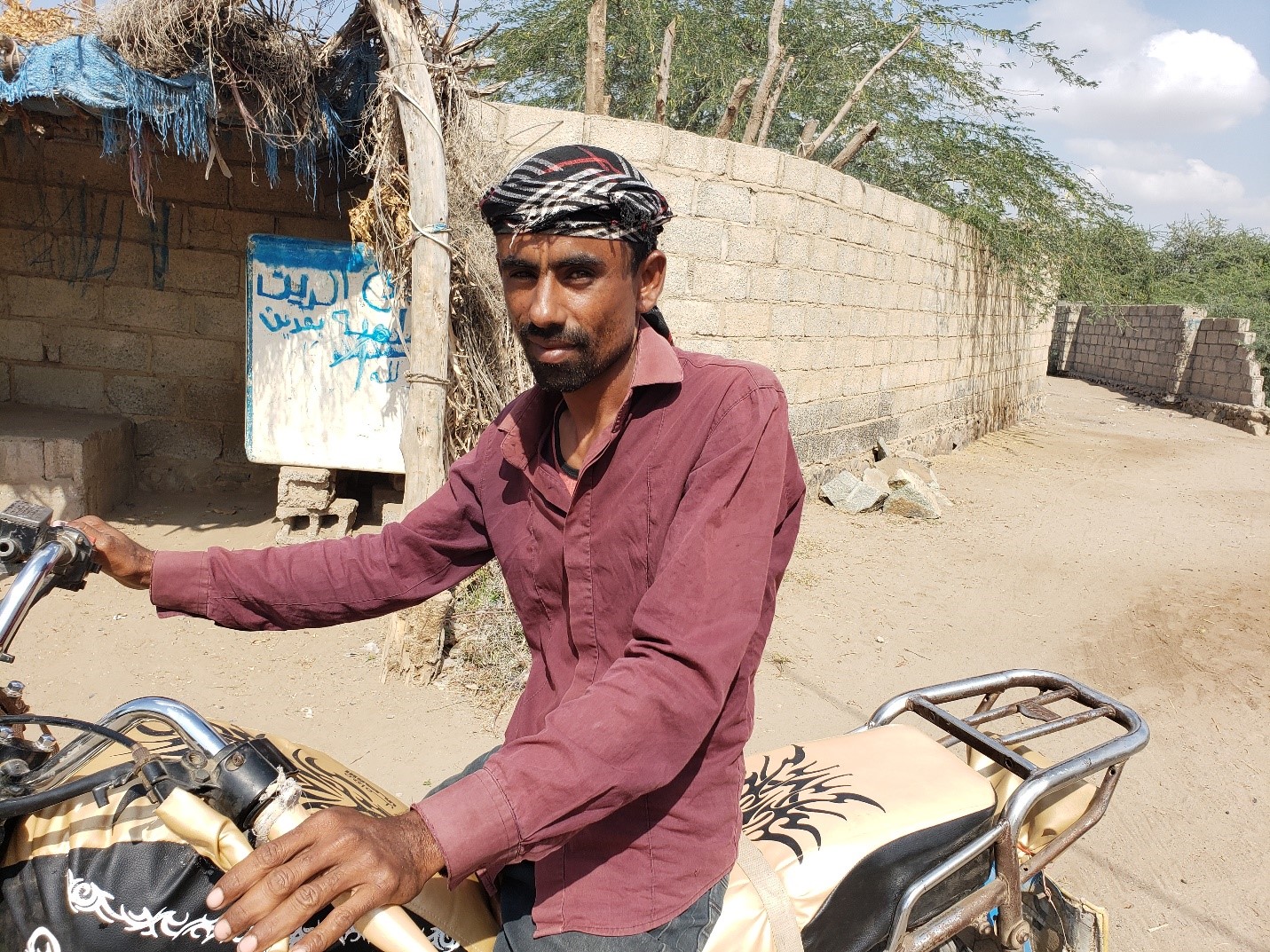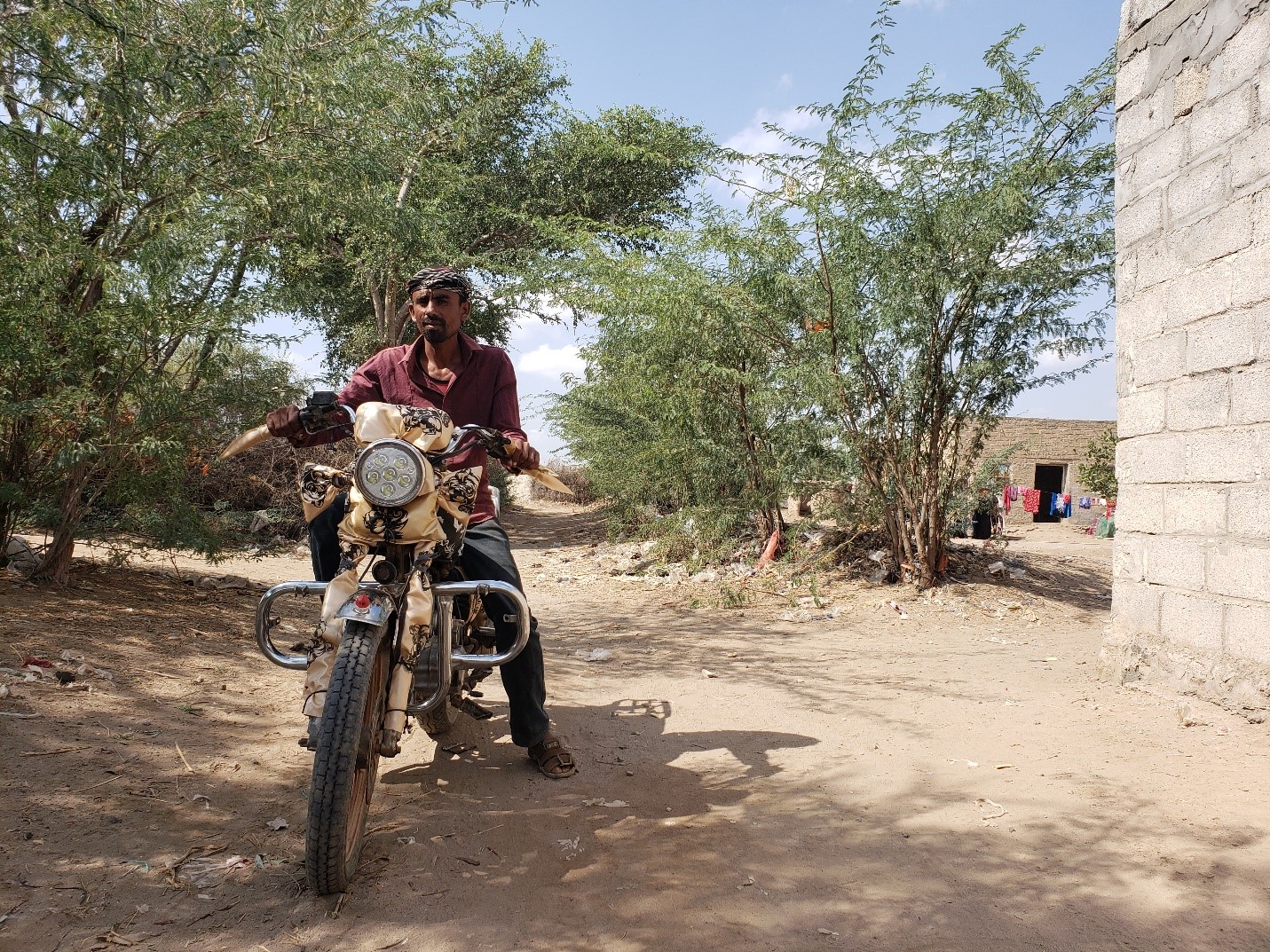Kassim Shajjab is a 38-year-old father of four children and the provider for his family. Unluckily, he only studied until the second grade in school, which reduced his opportunities to find a job. He lives in Al-Hadadiah, a small village surrounded by farms and trees in a deep valley, in Al-Mighlaf district of Hodeidah governorate of Yemen.
The cruel five-year-long war that Yemen is experiencing has left millions without income and jobs due to economic collapse. Kassim says: “Before the conflict started, I was working as daily worker in house construction or anything else I could do. I depended on myself to feed my children and my wife without any fear of tomorrow.”
He continues: “For years I used to illegally immigrate to Saudi Arabia to work, but now I cannot travel with smugglers because that would be a serious threat to my life, especially given the fighting on the borders of Yemen and Saudi Arabia. Imagine that you wake up with no chances to work, to live and to get food or medications for your family. How you can live without any options to survive?”
Kassim says he sometimes had work, but was forced to stop for weeks at a time, and once even for months. “I came back to my little house and I cried when I saw my family waiting for dinner. There were horrible moments. I wished to end my life and not to be in that situation.”
Fortunately, with funding from the UK’s Department for International Development (DFID) CARE intervened in Al-Mighlaf district with its Multisector Humanitarian Response Programme. CARE distributed cash assistance to vulnerable people affected by the ongoing conflict. People like Kassim received five instalments of cash, helping them to improve their family’s lives and live with greater dignity.



